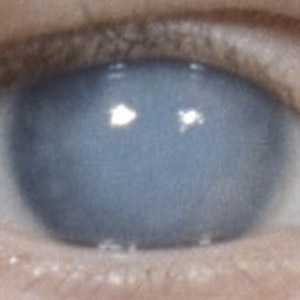 A new genetic cause of inherited disorder, corneal dystrophy, has been discovered by researchers at the UCL Institute of Ophthalmology and Moorfields Eye Hospital, in collaboration with scientists in the Czech Republic.
A new genetic cause of inherited disorder, corneal dystrophy, has been discovered by researchers at the UCL Institute of Ophthalmology and Moorfields Eye Hospital, in collaboration with scientists in the Czech Republic.
In the paper, published in the American Journal of Human Genetics, researchers found that alterations in the DNA sequence which affected regulation the OVOL2 gene in over 100 individuals with congenital hereditary corneal dystrophy and posterior polymorphous corneal dystrophy. The more severely affected individuals had symptoms at birth, with corneal haze evident as early as 12 months old. These individuals almost always required corneal transplantation surgery.
Register now to continue reading
Thank you for visiting Optician Online. Register now to access up to 10 news and opinion articles a month.
Register
Already have an account? Sign in here

